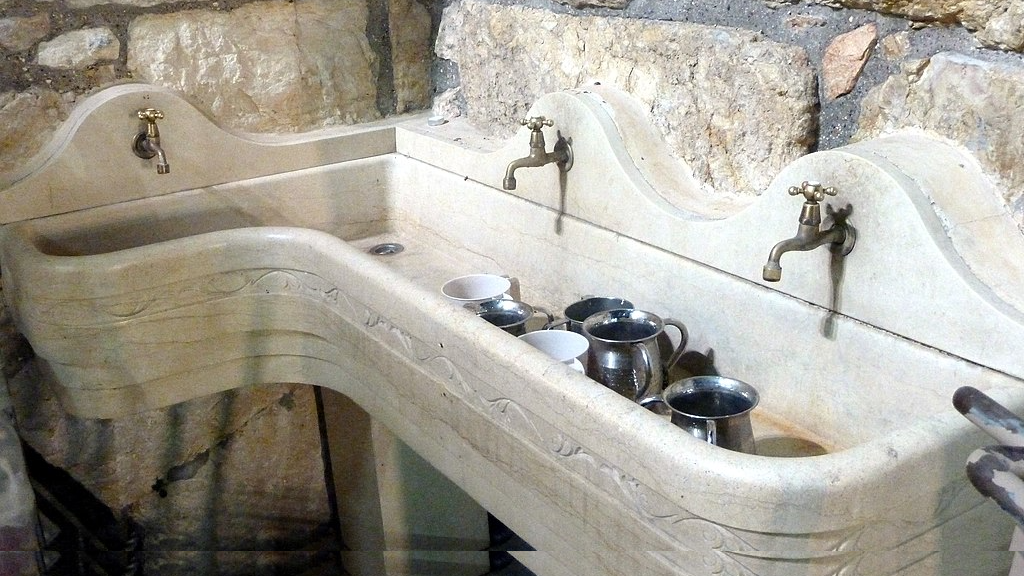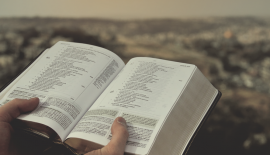Washing Hands – Signs of the Faith
In this series, ‘Signs of Faith’, objects, procedures and concepts that express Jewish faith are explained and discussed.
Washing your hands before eating or when you have been to the toilet—it is simply a matter of hygiene and the most normal thing in the world. And in corona times, we have become accustomed to doing it a bit more often. It has almost become a ritual.
In addition to ordinary hygiene, ritual purity is also important in Judaism. That is why it is also a precept to ritually wash your hands. You do this, for example, when you get up in the morning, before you eat bread or after you have been to the toilet and dried your hands. You pour some water from a bowl over both your hands and pronounce the blessing that goes with it. Hands are also washed before prayers. There are also other times when it is obligatory, such as when leaving a cemetery. Before the kohanim (priests) pronounce the priestly blessing in the synagogue service, the Levites ritually wash the kohanim’s hands and feet.
This is actually also where the origins of ritual hand washing lie. Before their service in the temple, priests had to ritually wash their hands and feet(Exodus 30:17-21). Moreover, the Bible (Leviticus 10:10) distinguishes between holy and unholy, pure and impure. In daily life, you come into contact with various degrees of impurity at all sorts of times. It has to do—in a nutshell, we cannot go into it too deeply—with the presence of death in life.
The Pharisees in ancient times longed to elevate themselves and all Israel to a nation of priests. Every Israelite is a priest, and every table is an altar. That is why, among other things, they wanted to introduce ritual hand washing, which was actually only obligatory for priests in the temple, for all people. Of course, this was not without controversy. We hear an echo of this in Matthew 15 and Mark 7.
Washing hands before eating bread is an expression of obedience to the commandment to be holy before the Lord. Moreover, it expresses the expectation of the Messiah so that Israel will be able to eat in a state of ritual purity when the temple is rebuilt.






